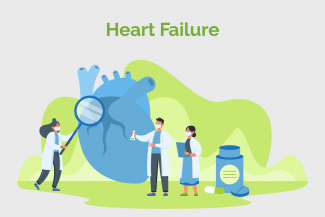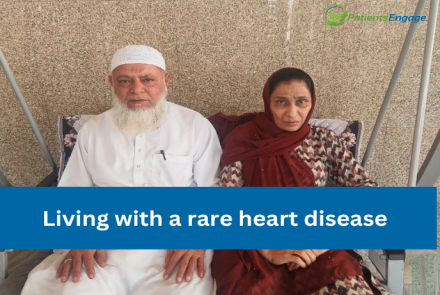
- Lifestyle modifications – It plays very important role in managing heart failure. Heart failure patients should reduce their salt intake and fluid intake. Quitting smoking and tobacco, maintaining a healthy weight and regular exercise is necessary under guidance of health care provider.
- Monitoring fluid intake: Patients may need to track their fluid intake and restrict it if necessary to prevent fluid overload.
- Cardiac rehabilitation – It combines exercise training, education and support to help patients with heart failure for improving their physical fitness and manage symptoms effectively.
What lifestyle changes does one need to make after implantation of cardiac devices? How can people reduce their risk for HF?
All patients with heart failure should restrict their salt and fluid intake. They should stop smoking, alcohol and other illicit drugs. They should control their other co-morbidities like blood pressure, diabetes and cholesterol. They should regularly monitor their weight, blood pressure and heart beats and should regularly consult their physician.
Patients with AICDs or CRTs should have their devices checked at regular intervals. They should check if their devices are compatible with MRI scanners before undergoing such scans. Other detailed precautions should be discussed with the treating physician and cardiologist.
What is the prognosis for acute and chronic HF? What happens if heart failure is left untreated?
Heart failure when left untreated, carries a dismal prognosis. Patients do succumb to heart failure if not adequately treated. Additionally, patients who recover from heart failure are at a high risk for a repeat hospitalization or repeat episode of heart failure within the first 30 days! Usually, if the cause of the heart failure is reversible and can be treated, the patient carries a good long-term prognosis. However, in some patients with fulminant heart failure or end stage heart failure, the long-term outcomes are bleak. Newer modalities of treatment like LVADs and Heart Transplant offer new hopes to these patients. Organ donation drives to increase the heart transplants all across the country offer prospects and possibilities to these terminal patients.
Complications:
- Heart failure can cause life threatening complications if not treated. Some common complications are listed below,
- Cardiac arrhythmias: Irregular heart rhythms as heart failure disrupts heart’s electrical system. Severe arrhythmias can cause sudden death.
- Blood clots can cause pulmonary embolism or stroke
- Cardiogenic shock – In severe heart failure cases, pumping ability of heart is compromised. That leads to organ dysfunction. It needs immediate medical attention.
- Impaired kidney function due to reduction in renal blood flow. It can result in renal insufficiency or acute kidney injury. Fluid retention, uremia and decreased urine output is identified.
- Liver is also affected by blood flow backing up from the heart to live. Severe hepatic congestion can lead to liver failure or hepatic encephalopathy.
- Fluid retention and venous congestion in heart failure can cause swelling or edema in the extremities, particularly the legs, ankles, and feet.
- Chronic heart failure leads to malnutrition and loss of muscle tissue throughout the body.
- Pulmonary edema, accumulation of fluid into the lungs due to elevated pressure in heart’s left ventricle. Shortness of breath or breathing difficulty can happen which need immediate treatment. If not treated on time can lead to respiratory failure or cardiogenic shock.
















